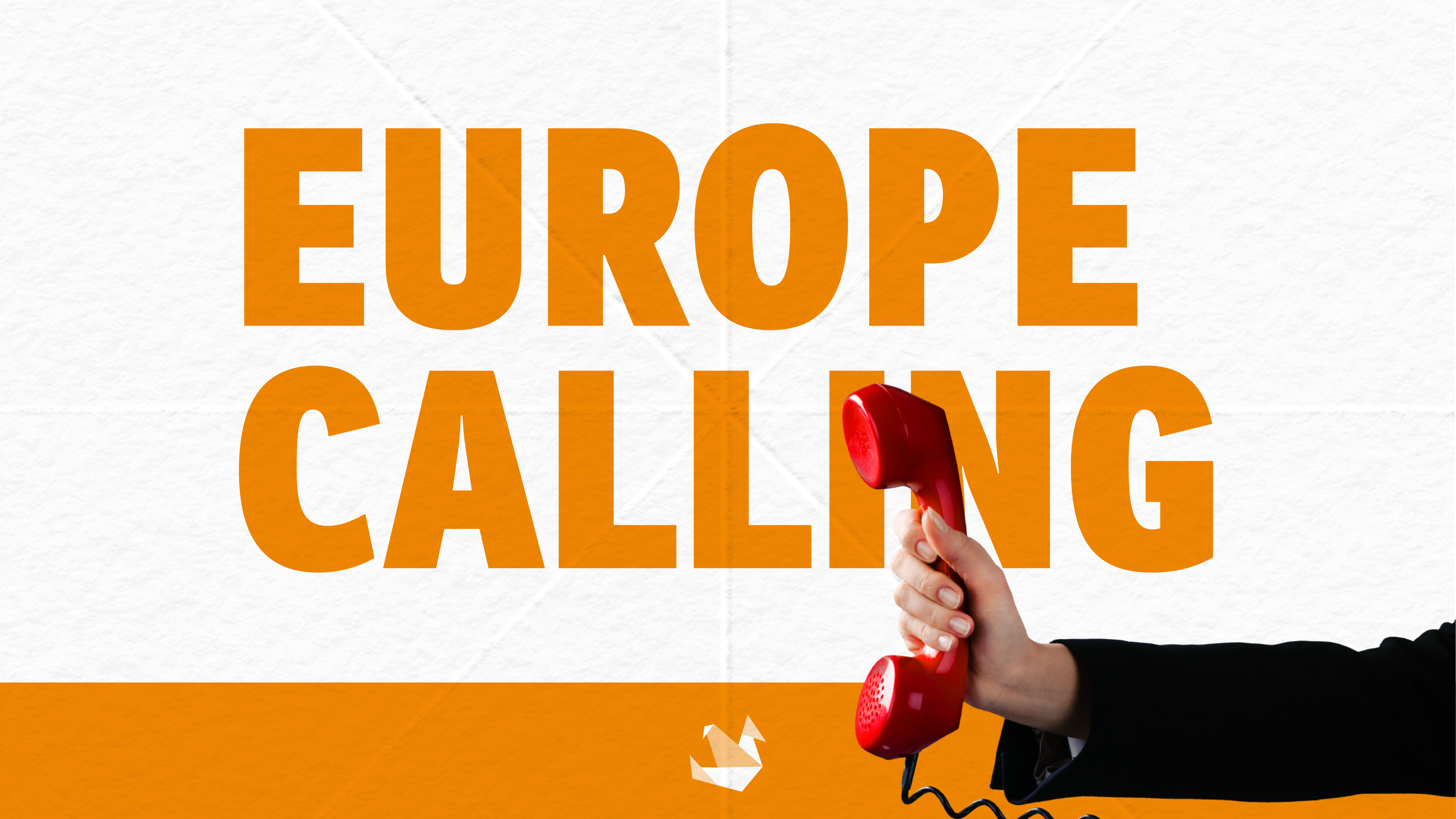359 million Europeans will cast their vote in the upcoming elections. In a highly challenging scenario characterised by international instability, growing authoritarianism, economic downturn and environmental crisis the PES faces a difficult election. We got in contact with the representatives of many different European Youth Wings to discuss the future of the Union. That’s how EuropeCalling, a column run on the blog of GD Milano, was born. Listen today to the voices of our comrades over the continent and read our other articles.
Today, we go to France, we are deeply thankful to the Mouvement des Jeunes Socialistes (MJS) and, especially, their foreign politics and Europe coordinator (as well as YES vice-president) João Martins Pereira for the availability!
Questo articolo è disponibile in italiano qui
Cet article est disponible en français ici
GD: How do you think Europe’s future is going to look like? Are we going toward a more integrated system or falling back into nationalism?
JS: Europe today stands at a crossroads: the future of Europe is to be decided on 9 June. Either it takes the road of nationalism, conflict and withdrawal – in short, it heads straight for suicide; or else it takes the road of progress, solidarity, respect for nature and democracy. Some EU countries have already taken one or other of these paths, and Europe remains the last bulwark against the far right. It is up to us to defend it.
GD: Do you think that the current European policies on immigration are just and fair? What should be changed?
JS: As Socialists, we deeply believe in the European project. The scapegoat strategy, which consists of making people believe that Europe is responsible for all the ills, is that of the populists who want nothing more than to destroy it. It is therefore up to us to defend its achievements: the maintenance of peace within its borders, Erasmus, the Green Deal, freedom of movement, the recent decisions on platform workers and decent minimum wages are all accomplishments that should be credited to Europe – and to us, European socialists, who have brought these projects and these ideals into the public debate.
Does this mean that we should be naïve? I don’t think so. The European Union has almost always been dominated by European conservatives, who are reluctant to build a social Europe, a Europe of public services, a Europe of health, a Europe as an ecological power, or a Europe of defence. We therefore propose an alternative European project to that of the right or the liberals, to change the lives of Europeans.
GD: Green transition, do you that your country is managing it correctly? And what do you think can be done on a European level to further integrate the energetical supply?
JS: France has a very special position in Europe when it comes to energy, with a large part of its energy mix coming from nuclear power (which is ageing, by the way) and a central geographical position within the European network, which means it can import or export electricity as and when required. However, France is not doing enough, either at national or European level, to drive the green transition. We need to develop renewable energies and electricity interconnections with our neighbouring countries. At European level, France is slow to improve interconnections with the Iberian Peninsula and Italy, and this is having a major impact on European greenhouse gas emissions.
As far as the EU is concerned, it must continue to invest massively in renewable energy production, support the decarbonisation of transport and industry, diversify its sources of supply (France increased its imports of Russian gas by 40% between October 2023 and February 2024 via TurkStream, etc.) so that it is no longer dependent on Russia or Azerbaijan, and support the renewable energy industries by protecting European solar panel manufacturers, for example. There is also the issue of reducing energy and electricity consumption, with the thermal renovation of buildings, which requires a major European plan.
GD: In recent years, there was a huge debate on defence, what’s your stance on a single unified European Army? And how do you think that this radical change in military strenght would affect the relationship between our countries and NATO?
JS: A common European army, in the sense of a single Europe-wide military group, seems difficult to achieve in the short term. There is an absolute need for our Union to form the European defence leg of NATO. This calls for the extension of existing mechanisms:
- An increase in expenditure linked to spending at the level of each Member State
- The creation or expansion of bi-national corps to be integrated into the Eurocorps, on the model of the Franco-German Brigade
- Strengthening European cooperation on defence, such as the common tank, and the interoperability of equipment used by national armies.
On this last point, we need to set up a European defence industry, supported by the principle of European priority: our armies should not have to depend on other countries to equip themselves in the medium term. None of this has to be done in opposition to NATO. Regardless of the outcome of the American elections in November 2024, the need to strengthen European defence has been apparent every day since Russia invaded Ukraine.
GD: How does your youth wing relate to the main Party? Do you move independently or work in a strict connection?
JS: The Young Socialists are an autonomous organisation in the sense that the young activists decide for themselves on their political priorities, their campaigning activities and their representation. The link with the party is very strong in the sense that the Young Socialists are nevertheless committed to respecting the values of the party and of the European and international socialist family.
GD: Do you feel your actual organisation is connected to the European socialdemocratic tradition and to the history of the Left?
JS: Absolutely, the French socialist family is at the heart of the history of the left and of European socialism. The ideological and material contributions of Jaurès, Blum, Mendès France, Mitterrand, Rocard, Delors and Jospin go beyond France’s borders. We are proud to be part of this tradition and to play an active role in international socialist bodies, in particular Young European Socialists, for which I have the honour of being Vice-President.
GD: How should/could youth organizations coordinate at the continental level to be more decisive and effective on the different topics (also present in your manifesto)? Enter the specifics and also give us some technical suggestions.
JS: Youth organisations in Europe must strengthen their cross-border cooperation, between neighbouring countries, but also within YES, which is the appropriate tool for this cooperation. They must take part in the debates held there, formulate proposals, but also communicate within themselves the positions and initiatives taken at YES level.
GD: In recent years, it has become increasingly difficult to embroil our peers in active politics, do you have the same situation in your country? How do you think that we can deal with the growing indifference?
JS: It is true that political commitment has taken on new forms. And political parties have to adapt to this reality. On the other hand, I’m not sure I believe that young people are indifferent. Rather, I believe that young people are demanding, and expect political leaders to come up with concrete solutions. It’s up to us to make these solutions heard.
GD: How do you judge Ursula Von der Layen’s administration? Do you think that she dealt rightly with the difficult situations that we have faces in the last 5 years?
JS: We need to look at the Von der Leyen administration’s record in detail. The part led by the Socialist Commissioners is a source of pride for us, and we must lay claim to it (Green Pact, directive on platform workers, decent minimum wages, etc.). On the other hand, Von der Leyen also has a negative record, with the contractualisation of inhumane agreements with third countries on the management of migrants, and with Alyiev on gas supplies. We must condemn this, just as we must condemn the door she is opening to cooperation with the far right in Europe.
GD: Our organization is currently electing its new leader. There is actually a huge and sometimes harsh debate over the rules that should be used. It can be useful, for us, to take suggestions from other organizations, how does the election process function in your organization?
JS: It’s difficult to give a written answer, but I’d be happy to think about it in the context of YES.






